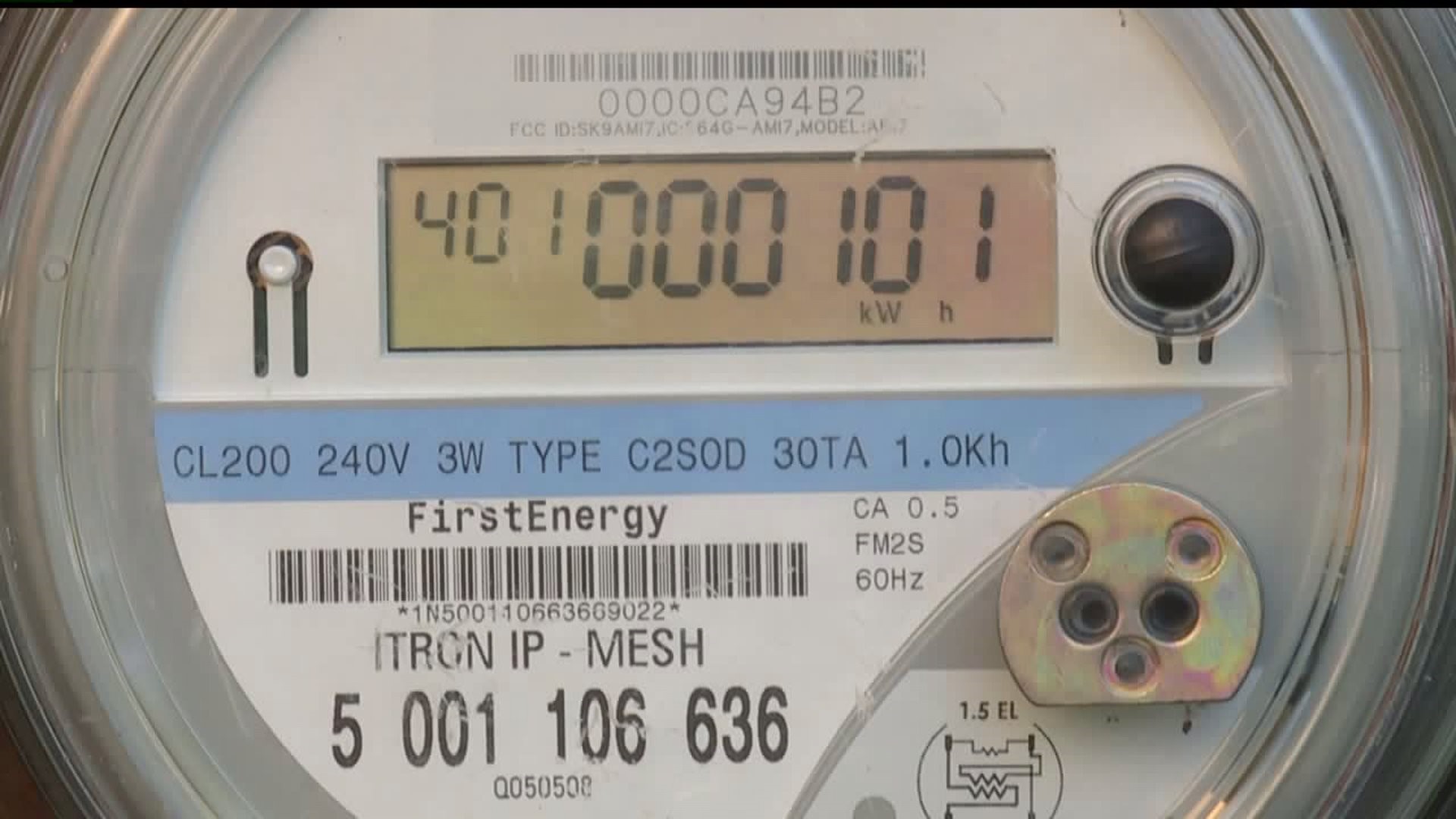SPRINGETTSBURY TOWNSHIP, YORK COUNTY -- The smart meter roll out is happening across central Pennsylvania right now and several people have contacted FOX43 Finds Out to look into the issue.
"We were the last people in the neighborhood. We pushed it as far as we could."
Chip Nace's family has lived in Springettsbury Township, York County for decades.
For years, their electricity was read on a mechanical meter like this one.
Then, the family started getting letters in the mail from Met Ed saying they needed to make the switch to smart meters.
After ignoring the issue for a few months, another letter came with a warning.
"They sent a 10 day shut off notice," said Nace.
That's why Nace finally gave in and someone came to install the new smart meter.
"It's their way or no way basically."
Nace is worried that smart meters haven't been around long enough to really be studied to know how they work and how they impact us.
"It just seems like an unsafe unit and they're just throwing them out on people's homes."
The Pennsylvania Utility Commission insists the meters can save customers money and are safe.
Claiming smart meters use radio frequency and that these new meters use less radio frequency than a cordless phone, cell phone or microwave.
However, Nace has another concern.
"There's plenty of issues of homes completely burning down or the electricity may pass through and blow up the entire box or blow up the outlets."
A quick search on YouTube and you'll find plenty of videos of fires and power outages claiming to be sparked by a smart meter and a Google search will turn up plenty of groups that say a lot of the same.
Power companies, state and federal government say otherwise.
When asked about the issue, a spokesperson for First Energy Corp, which runs Met Rd and Pennelec says "Safety and operating standards address factors such as humidity, rain, voltage surge and others to ensure meters operate properly when functioning within certified operational parameters."
The power companies also say the new meters are more energy efficient and accurate.
With mechanical meters, most power companies send a meter reader out every other month.
So, the in between month reading is likely an estimate of your power usage, not the exact amount.
The smart meters, which are connected wirelessly, can be read remotely and don`t require a meter reader.
"I get it, they're trying to eliminate the meter reader coming out and reading the meter. Again, you're eliminating jobs, your taking people's work from them," said Nace.
First Energy Corp officials say that`s not the case.
Telling us "More than 40 full-time meter readers have been successfully placed in other roles throughout the company over the past year."
Under Act 129 most power companies in Pennsylvania need to install the smart meters on homes and businesses by 2023.
"The biggest thing is an opt out. I just want the choice to say no, that's it."
However, Pennsylvania doesn't offer an opt out.
The Pennsylvania Utility Commission says "Installation of a smart meter is a condition of service to more accurately reflect rates and usage, and will ensure no disruption to your service."
"If they want to offer them, that's fine, but the fact that there forcing people to take them and the fact that they're willing to shut your electricity off to get you to that point to put it back on, I don't think that's the right thing to do," said Nace.
There is legislation in Pennsylvania right now that could change the no opt out rule.
Representative Mike Reese out of western PA has introduced a few bills in the State House Consumer Affairs Committee to either repeal the mandate or at least give a chance for people to say no.
Similar legislation has been introduced in the past, but just didn't really go anywhere.
Pennsylvania is not the only state that is rolling out the smart meters.
States like California, Maryland and Maine do offer opt outs.
In some of those states saying no to the smart meters does require a fee.

